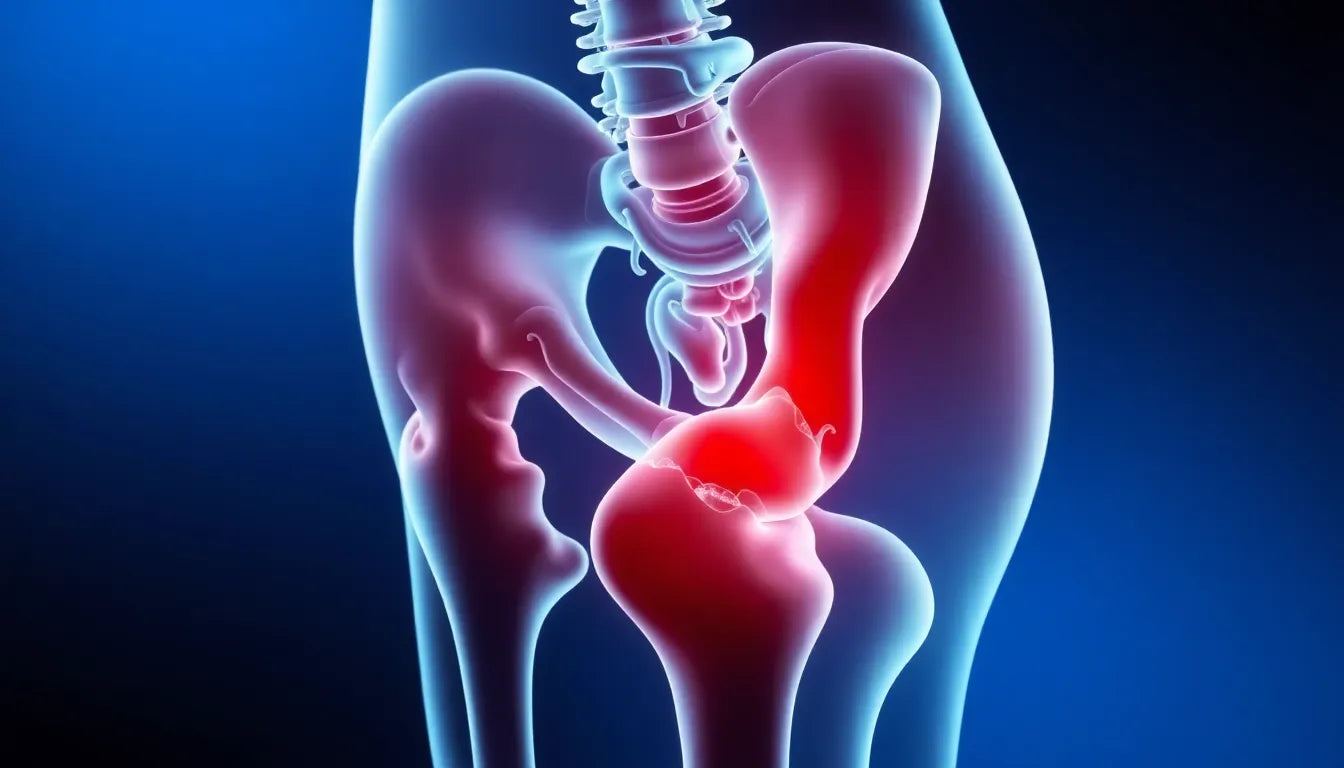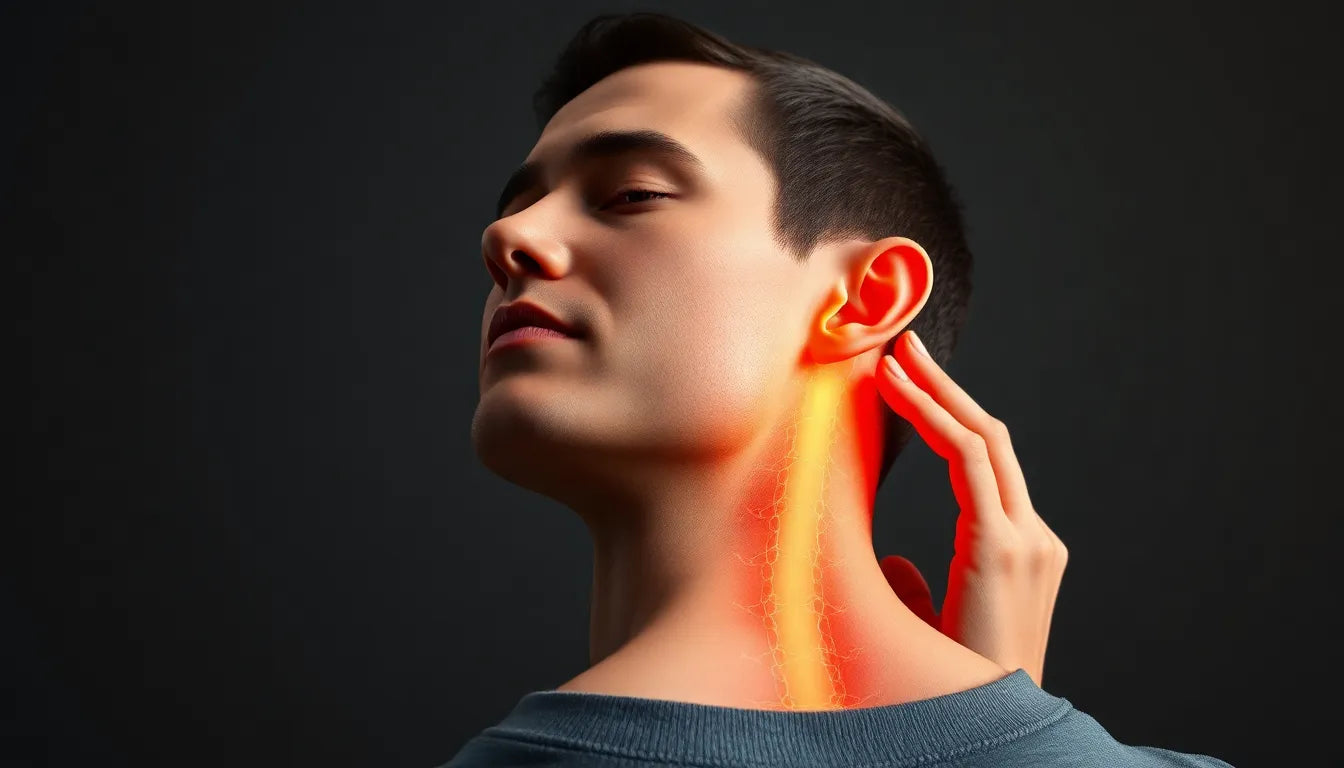For many, the struggle with nighttime hip pain is all too familiar. As the day winds down and you settle into bed, the discomfort in your hips can become a relentless barrier to a restful night's sleep. This persistent pain can lead to frequent awakenings, tossing and turning, and ultimately, a night of broken rest. The frustration of disrupted sleep due to hip pain is not only exhausting but can also have a significant impact on your overall well-being. Addressing this issue is crucial for maintaining both physical health and mental clarity.
Nighttime hip pain is a common issue that affects a substantial number of people, particularly those dealing with conditions like osteoarthritis. This type of pain can range from mild discomfort to severe pain that makes it difficult to find a comfortable sleeping position. The prevalence of this problem highlights the need for effective solutions that can help manage the pain and improve sleep quality.
The primary goal of this post is to offer practical insights and solutions for managing nighttime hip pain, allowing you to enjoy a more restful and uninterrupted sleep. By understanding the causes and symptoms of hip pain, you can take proactive steps to alleviate discomfort and enhance your sleep experience. Whether it's through adjusting your sleep position, selecting the right mattress, or exploring other therapeutic options, there are strategies available to help you rest easy.
In the following sections, we will delve deeper into the causes of nighttime hip pain, exploring conditions such as hip bursitis, osteoarthritis, and tendonitis. Each of these conditions presents its own set of symptoms and challenges, but with the right approach, relief is possible. We will also discuss how hip pain can disrupt your sleep, leading to fatigue and decreased energy levels during the day. Understanding these dynamics is key to finding effective solutions.
Ultimately, the aim is to empower you with knowledge and tools to manage your hip pain effectively. By implementing the strategies discussed, you can look forward to improved sleep quality and a better quality of life. Stay tuned as we explore these topics in detail, providing you with the information you need to overcome nighttime hip pain and achieve the restful sleep you deserve.
understanding nighttime hip pain
Nighttime hip pain can stem from a variety of causes, each with distinct symptoms and implications. Among the most common are hip bursitis, osteoarthritis, and tendonitis. Hip bursitis, often characterized by sharp or aching sensations, occurs when the bursae—small fluid-filled sacs that cushion bones and soft tissues—become inflamed. This condition frequently causes pain on the outer hip that intensifies when lying on the affected side.
Osteoarthritis, a degenerative joint disease, primarily affects older adults but can impact individuals of almost any age. It typically presents as a deep, aching pain in the groin area, exacerbated by periods of inactivity. Tendonitis, on the other hand, involves inflammation of the tendons surrounding the hip joint, leading to discomfort and stiffness that can worsen at night.
how hip pain disrupts sleep
Nighttime hip pain can significantly disrupt sleep, leading to a cascade of negative effects on daily life. The discomfort often causes frequent awakenings and difficulty finding a comfortable position, resulting in fragmented sleep. This disruption not only affects the quality of sleep but also contributes to fatigue and decreased energy levels during the day. Studies indicate that nocturnal hip pain affects a substantial percentage of individuals with hip osteoarthritis, with prevalence rates ranging widely due to varying definitions and measurement methods.
The link between sleep disruption and fatigue is well-documented, underscoring the importance of addressing nighttime hip pain. Poor sleep quality can impair cognitive function, mood, and overall health, making it crucial to find effective solutions for managing hip pain during the night.
practical solutions for immediate relief
Alleviating nighttime hip pain often begins with simple adjustments to sleep positions. For many, sleeping on the back or using a pillow between the knees can significantly reduce pressure on the hips. These positions help maintain proper spinal alignment and distribute weight more evenly, minimizing discomfort.
The quality of your mattress and pillows also plays a critical role in managing hip pain. A mattress that provides adequate support and pressure relief is essential. Memory foam or hybrid mattresses are often recommended for their ability to contour to the body's shape, reducing pressure points. Additionally, the strategic placement of pillows can enhance comfort; for side sleepers, placing a pillow between the knees can help align the hips and spine.
While these immediate solutions can offer relief, they are often most effective when combined with other therapeutic approaches. Exploring a combination of strategies tailored to your specific needs can help you achieve a more restful and pain-free sleep.
comprehensive treatment options for nighttime hip pain
Addressing nighttime hip pain often requires a multifaceted approach that includes both self-care measures and professional interventions. For those seeking immediate relief, non-invasive treatments can be highly effective. Topical NSAIDs and anti-inflammatory medications can reduce inflammation and alleviate pain. Additionally, incorporating specific stretching exercises into your routine can enhance flexibility and reduce tension in the hip area. A simple stretching guide might include hip flexor stretches, hamstring stretches, and gentle yoga poses aimed at easing hip discomfort.
In cases where self-care measures are insufficient, professional medical advice may be necessary. Physical therapy can offer targeted exercises and strategies to strengthen the hip and improve mobility. For more persistent pain, medical interventions such as hip injections or acupuncture may provide significant relief. In advanced cases, surgical options like hip replacement might be considered to restore function and alleviate chronic pain.

Lumbar support belt
Provides lower back support and relief; ideal for sciatica, herniated discs and general back pain.
lifestyle modifications for long-term management
Beyond immediate relief, long-term management of nighttime hip pain involves adopting lifestyle modifications that reduce the risk of recurring discomfort. Maintaining a healthy weight is crucial, as excess weight places additional stress on the hip joints. Incorporating low-impact exercises such as swimming, cycling, or walking can enhance joint health without exacerbating pain.
Ergonomic products can also play a significant role in managing hip pain. Hip-supporting cushions and specially designed chairs can provide additional support during daily activities, reducing strain on the hips. These products are particularly beneficial for individuals who spend extended periods sitting, as they help maintain proper posture and alignment.

ActivePosture® Shirt for women
Posture-enhancing shirt offering comfort and support for daily activities and sitting.
frequently asked questions
what causes hip pain at night?
Nighttime hip pain can be attributed to several factors, including medical conditions such as hip bursitis, osteoarthritis, and tendonitis. Lifestyle factors, such as prolonged periods of inactivity or poor sleeping posture, can also contribute to increased discomfort at night.
how can I sleep better with hip pain?
To improve sleep with hip pain, consider adjusting your sleep position by lying on your back or using a pillow between your knees to maintain alignment. Selecting a supportive mattress, such as memory foam or a hybrid, can also help alleviate pressure on the hips.
when should I see a doctor for hip pain?
If hip pain persists despite self-care measures, or if you experience symptoms such as severe pain, swelling, or limited mobility, it is advisable to seek medical evaluation. A healthcare professional can provide a comprehensive assessment and recommend appropriate treatment options.
are there any exercises that can help relieve hip pain?
Yes, exercises such as hip flexor stretches, hamstring stretches, and gentle yoga poses can help alleviate hip pain and improve flexibility. These exercises should be performed regularly and with proper form to maximize their benefits.
Källor
- SA Ortho Specialists. (n.d.). "Why Your Hips Hurt at Night."
- Healthline. (n.d.). "Hip Pain at Night: Causes and Treatment."
- Arthritis Foundation. (n.d.). "Causes and Treatments for Nighttime Hip Pain."
- Guthrie. (n.d.). "What Causes Hip Pain at Night and How to Treat It."
- Van Thiel, MD. (n.d.). "Causes of Hip Pain at Night & How to Get Relief."
- OSSM Newark. (n.d.). "Hip Pain When Sleeping on Side."
- Cleveland Clinic. (n.d.). "Hip Pain: Causes, Symptoms, and Treatment."
- Healthcare Utah. (2023). "Goodbye Hip Pain: Your Guide to Prevention and Treatment."
























